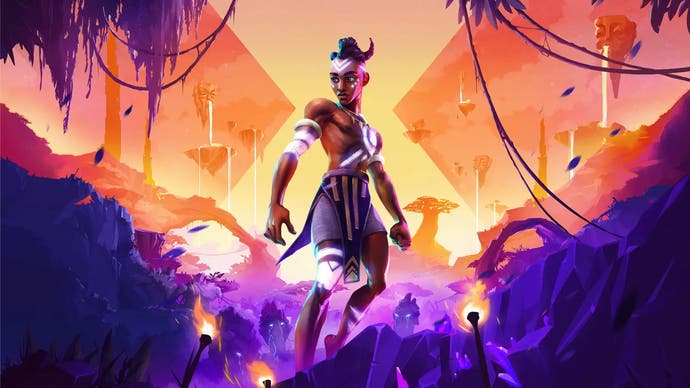Abubakar Salim addresses "fever pitch" of racism received after launch of Tales of Kenzera: Zau
"There's room for all of us."
Abubakar Salim, creator of the recent Tales of Kenzera: Zau, has addressed the "fever pitch" of "constant targeted harassment" the studio has received since the release of the game.
The game is inspired by Salim's own story of grief and set in an Afrofuturist world based on Bantu Tales and African folklore.
However, in a video posted to X, Salim responded to the abuse received and announced a price drop for the game on Switch.
"We are being faced with constant targeted harassment from people who see diversity as a threat, from people who look across the vast landscape of modern media and decide that anything that doesn't speak to them or centres around them is unnecessary and inauthentic," he said.
"There's always a reason diverse stories can't exist. It's either we're doing it the wrong way or it's just there to tick boxes. And it's just beginning to feel like there is no right way, these exclusionary rules just continue to stack up and the goalposts continue to shift until me, my studio, people who look like us just sit down, be quiet and just accept the fact that you're outsiders. But I won't do that."
He continued: "If there are people who aren't like you in a game, I want you to know that game is still for you. If the characters are a different race, or a different gender, or a different ideology, or a different perspective, that doesn't mean the game isn't for you. It can still be for you. It's an opportunity to live in rich new worlds, to explore different perspectives, to explore different cultures... you just need to be open to it."
In response, Salim has worked with Nintendo to drop the price of Tales of Kenzera: Zau in the US until the end of June, which he intends to do across all platforms.
"I really believe games are for everyone, that's why I insisted on setting Zau's cost at the price of a pizza," said Salim.
"I genuinely believe in the power that games have to bring us closer together," he surmised. "Diverse games are not about taking something away from you, they're about adding something in. Because there's room for all of us."
Sadly, since the release of the video, Salim and the development team have received further abuse accusing them of faking the harassment as a marketing ploy.
Salim has addressed this in a further thread.
"Since the first moments of creating this game, the focus was on my father's legacy and what I wanted it to leave behind to represent that," he said. "Since announcing, we steered away from race as a subject matter as much as possible, because the game isn't about that. It's about the human journey of grief.
"This didn't stop the harassment that came our way. And I knew that as soon as I chose to address the subject of race, the legacy of this game would be diluted. But something had to be said. Suffering in silence wasn't an option. It needed to be addressed. Because by not speaking to it, countless others out there who would also suffer in silence and not see the power they have to tell stories through their unique perspectives, whether they choose to make the race of the character a key focus or not."
Salim has been refreshingly open about the development of the game in the run up to its launch and ever since.
"There are all sorts of obstacles you have to go through [to make a game], but I feel like that knowledge needs to be shared," he previously told Eurogamer about his transparency. "I think it's important to be quite open and talk about this and I think we're getting there, we're slowly moving towards that kind of position."
Salim's comments follow a new wave of anti-diverse sentiment that's seeped into the gaming community, particularly after the work of diversity consultancy Sweet Baby Inc., which has been wrongly accused by some of pushing a "woke agenda" in the games industry.
"I've not played a game like Tales of Kenzera before because this type of setting isn't seen enough in gaming, whether due to under-representation in the industry or perceived lack of interest from players," I wrote in our Eurogamer Tales of Kenzera: Zau review. "But these stories deserve to be told and Salim deserves praise for creating a game with a world that feels so fresh and unique."



.jpg?width=291&height=164&fit=crop&quality=80&format=jpg&auto=webp)


.png?width=291&height=164&fit=crop&quality=80&format=jpg&auto=webp)



